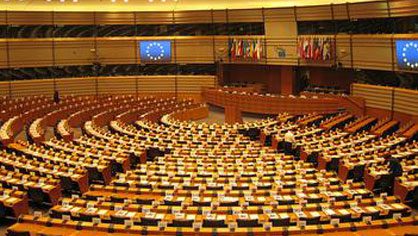21 September 2012
The Lisbon Treaty has given the European Parliament a central role in agreeing legislation under the Common Fisheries Policy. As a result, the European fishing organisations, including the NFFO, are adapting to the new political realities
For these reasons, the NFFO was prominent this week (as part of Europeche and regional advisory council delegations) at two important hearings of the European Parliament Fisheries Committee.
At the first, the European fishing industry presented its views at a meeting organised by Dianne Dodds MEP, on how CFP reform might best secure a decisive reduction in discards through a coherent strategy, based on a fishery-by-fishery, risk-based, approach. At the second, to the whole Fisheries Committee in session, the RACs, welcomed the Commission’s proposal for improvements to the much criticised EU Cod Management Plan.
Cod Plan
The members of the Fisheries Committee appeared to appreciate the views of the RACs on how to strengthen the EU cod plan, and asked pertinent questions to bolster their understanding of what are undoubtedly complex issues.
After many years in which the RACs have criticised the Commission’s top-down approach, it is possible for the RACs to acknowledge that the new Proposal has to a significant extent taken on board the points made in RAC and STECF advice. Some points in the Commission’s Proposal for an interim regime, to stand until a full mixed fishery plan can be developed and agreed, still require clarification and fine tuning but this Proposal does have the hallmarks of a breakthrough.
Both the North Sea and NW Waters RACs emphasised the importance of the Parliament’s support in securing fast track changes to the current cod plan; in particular to the automatic reductions in effort and TACs. Our fear is that the current impasse over which European institutions have legal competence over management plans, will prove to be an impediment to the quick adoption of these urgent interim measures. With goodwill on all sides, however, it should be possible to adopt the revised plan rapidly bringing advantages to both the fishing industry and the cod stocks.
A full mixed-fishery multi-annual plan is still in gestation and will be ready in 2014 at the earliest.
Discards
The hearing provided a useful opportunity to explain to the co-legislators some of the practical realities which must be addressed if the application of an obligation to land all catches of defined quota species is not to be another high level political aspiration that fails to deliver.
Issues such as increased TACs to cover by-catch in mixed fisheries, year-on-year quota flexibility, different survival rates, catch composition rules, addressing choke species and minimum landing sizes are amongst the preconditions for a “discard ban”; yet so far there is little sign that this is fully understood by the people making the rules. The hearing provided an opportunity to bring these issues to the fore.
CFP Reform
The reform process will mean that many more of these hearings will be required to ground the Parliament’s thinking in the realities of managing fisheries. One of the great challenges will be to ensure that the Parliament understands the dangers of micro-management and the importance after 20 years of failed over-centralised policies, of delegating responsibility, initially to the regions.

